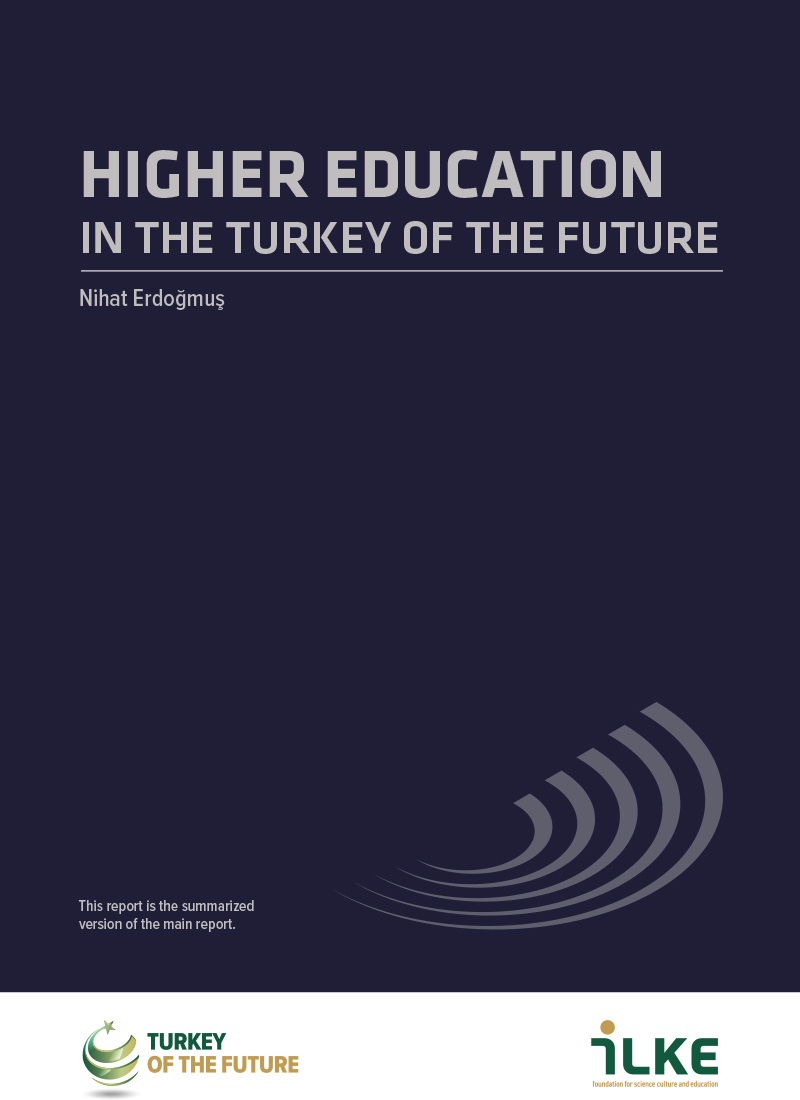HIGHER EDUCATION IN THE TURKEY OF THE FUTURE
This report handles important issues ranging from how to strategically manage the continuously increasing change in higher education to the possibility of a higher education structured on the basis of meeting contemporary demands, from organizing consultancy services suitable to the new career understanding to searches for sustainable sources of finance. This report consists of two primary sections: the need for change in higher education and the vision plan for higher education. The first section addresses preparing for the future in higher education and the need for change, and the second section presents a vision for higher education. The second section contains 12 thematic points regarding the vision for higher education. This section primarily addresses the themes of change and reorganization in higher education while paying attention to its importance, priority, and chain reactions. Afterward, a vision including themes such as access, educational settings, career, and employment skills in a higher education system that centers itself on students is provided. Following these are themes devoted to academicians. The final sub-sections address the themes of social and economic contributions, internationalization, and finance. .








